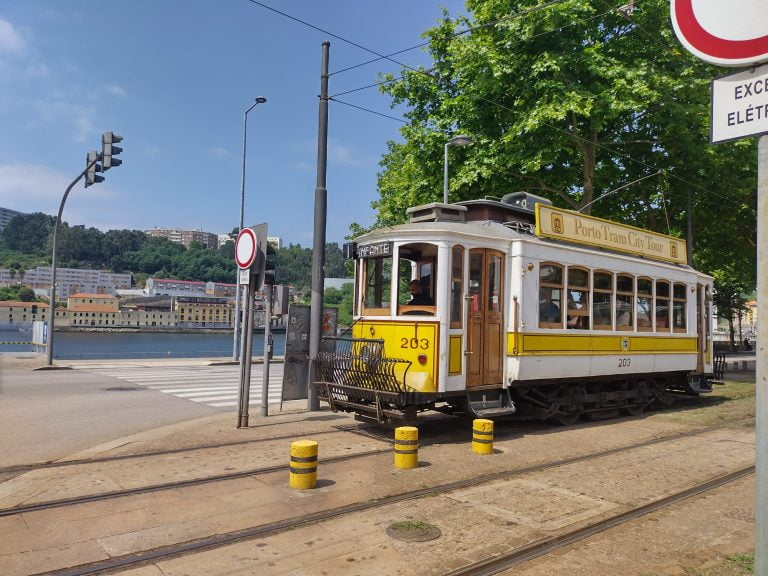The age of public transport – Eurocities Mobility Forum 2023
Public transport took centre stage at the 31 May – 2 June Eurocities Mobility Forum in Porto.
Driving the discussions, upcoming EU policy that assigns buses, trams and metro a prominent role in cities’ mobility plans. The development is a key component of the green transition: asked to leave their own vehicles at home, city dwellers must be presented with alternatives that won’t make them miss their cars.
Public transport must be “available and attractive to all and offer barrier-free access. It should maintain a high safety culture to protect the general public, children and vulnerable users, and attract new groups of people,” the EU Parliament asked last April in the EU Urban Mobility Framework.

Urban mobility experts on stage at the Eurocities Mobility Forum in Porto
If approved in its current form, the Framework would ask cities to increase the quantity and quality of their public transport options, giving commuters sustainable and affordable alternatives within and beyond urban boundaries.
For municipalities, there’s still a long way to go before reaching those goals and winning commuters’ hearts: public transport ridership is at 80% compared to pre-pandemic numbers, figures from UITP (the International Association for Public Transport) show. Meanwhile, Eurostat data points to an increase in the number of passenger cars per inhabitant in the EU in 2021, from 0.53 to 0.57, with higher rates in Western Europe.
For Pedro Baganha, the Porto City Councillor responsible for Urbanism, Public Space and Housing, local governments should counter the appeal of private vehicles by making residents’ lives easier. “People are clever and if it is faster and cheaper to take public transport than a car, slowly they will realise that and change,” Baganha remarked.
Róbert Szűcs, the European Commission’s Policy Officer at the Directorate-General for Mobility and Transport, agreed. “The way forward is to show those driving to our cities every day that there are other choices besides cars,” said Szűcs, the moderator of the ‘A multimodal revolution with public transport at its core’ panel.
The topics discussed at the Forum were very much aligned with the goals of UPPER, which was featured in the Project Village. On the last day of the Forum, the participants had a chance to share their public transport-related challenges at the Public Transport Speed Networking Session Table. After a brief presentation of the UPPER project, the discussion followed on what challenges cities face with public transport management in the post-COVID era and how could UPPER help with addressing them.

UPPER Speed Networking table on Mobility Forum in Porto
The full article is published on the Eurocities website.
